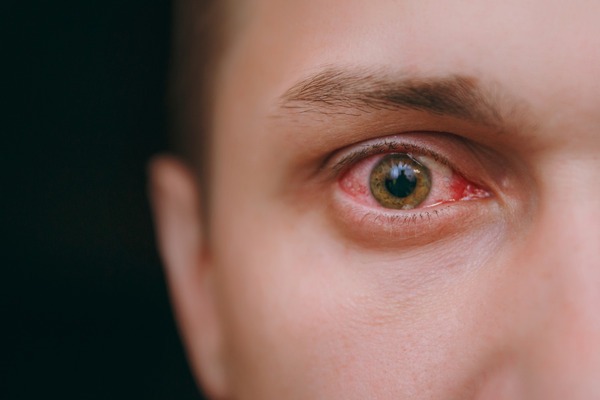Why Contact Lenses are Important?
Contact lenses are important for many people who require vision correction but do not want to wear glasses or undergo surgery. However, improper use of contact lenses can lead to symptoms of eye infection, such as redness, irritation, and blurred vision. Contact lenses can provide clear and comfortable vision, allowing for better participation in various activities and improved quality of life when used correctly.
Contact lenses are also a good option for those who have refractive errors that cannot be corrected by glasses, such as irregular astigmatism or high degrees of nearsightedness, or farsightedness. Additionally, contact lenses can offer cosmetic benefits, such as changing the color or appearance of the eyes. However, improper use and care of contact lenses can increase the risk of eye problems.
Some of the most common eye infections associated with contact lenses include:
- Bacterial Keratitis: This is an infection of the cornea caused by bacteria. Symptoms include redness, pain, light sensitivity, and blurry vision.
- Fungal Keratitis: This is an infection of the cornea caused by fungi. Symptoms include pain, redness, light sensitivity, and blurry vision.
- Acanthamoeba Keratitis: This is a rare but serious infection caused by a tiny one-celled organism called acanthamoeba that lives in water, including tap water, swimming pools, and hot tubs. If you wear contacts, avoid opening your eyes in a hot tub where this parasite is typically found. It is even smarter not to wear your contacts in these situations or take them out and clean them immediately after.
Symptoms of Eye Infection
The symptoms of an eye infection can vary depending on the specific type of infection, but some common symptoms include:
- Redness in the eye
- Pain or discomfort in the eye
- Itching or burning sensation in the eye
- Sensitivity to light
- Excessive tearing or discharge from the eye
- Blurred vision or difficulty seeing
- Swollen eyelids or a feeling of heaviness around the eye
- Crusty or sticky discharge around the eye, especially in the morning
- Foreign body sensation or feeling like there is something in your eye
- Decreased vision or loss of vision in severe cases

Prevention of Eye Infection
To reduce the risk of eye infections associated with contact lenses, it is important to follow these guidelines:
- Wash hands thoroughly before handling contact lenses.
- Use only sterile contact lens solution to clean and store lenses.
- Replace lenses as recommended by the manufacturer or eye care professional.
- Never share contact lenses with others.
- Avoid wearing contact lenses while swimming or in hot tubs.
- Remove contact lenses before sleeping or taking a nap.
- Avoid wearing contact lenses for longer than recommended by your eye care professional.
In conclusion, contact lenses offer a convenient and effective alternative to traditional eyeglasses, but they also come with a risk of infection if proper hygiene practices are not followed. Parasites such as acanthamoeba can lead to serious eye infections, which can have long-term consequences for vision health. To minimize the risk of infection, it is crucial to follow good hygiene practices.
If you experience any symptoms of an eye infection, it is important to see an eye doctor as soon as possible to prevent further complications and receive proper treatment. With proper care, contact lenses can be a safe and effective vision correction option for millions of people worldwide.






